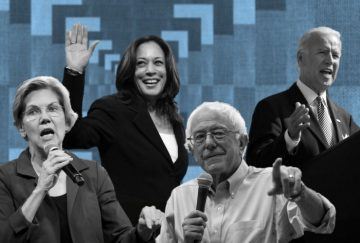 Felicia Wong in the Boston Review:
Felicia Wong in the Boston Review:
A reasonable Democrat from just a few years ago—way back in 2015, say—would be forgiven for not recognizing the basic ideas at the center of the party’s political debate today. It is a bold new agenda: doubling the top tax rate to 70 percent; achieving 100 percent renewable energy in the foreseeable future; eschewing balanced budget norms and embracing federal deficits; and breaking up the tech giants. Such proposals, which are designed to change how key societal institutions are structured, usually die of their own fantastic ambitions well before they reach the halls of power. But 2019 represents a sharp break from business as usual. Indeed, these are the official platforms of U.S. senators and governors running to become president of the United States.
What, exactly, is going on? The most straightforward answer is that a new economics is being born—one that is being argued everywhere from academic journals to the 2020 campaign trail and is moving with surprising alacrity to mainstream consciousness. Interestingly, no single figure on the left—no John Maynard Keynes, no Milton Friedman—has fully sketched out this new paradigm. Conversely, and perhaps most importantly, Donald Trump is not the driving force behind it. The president may be the most dominant figure in U.S. politics, but he is a side show in the Democratic party’s embrace of a new and more progressive economics.
More here.
